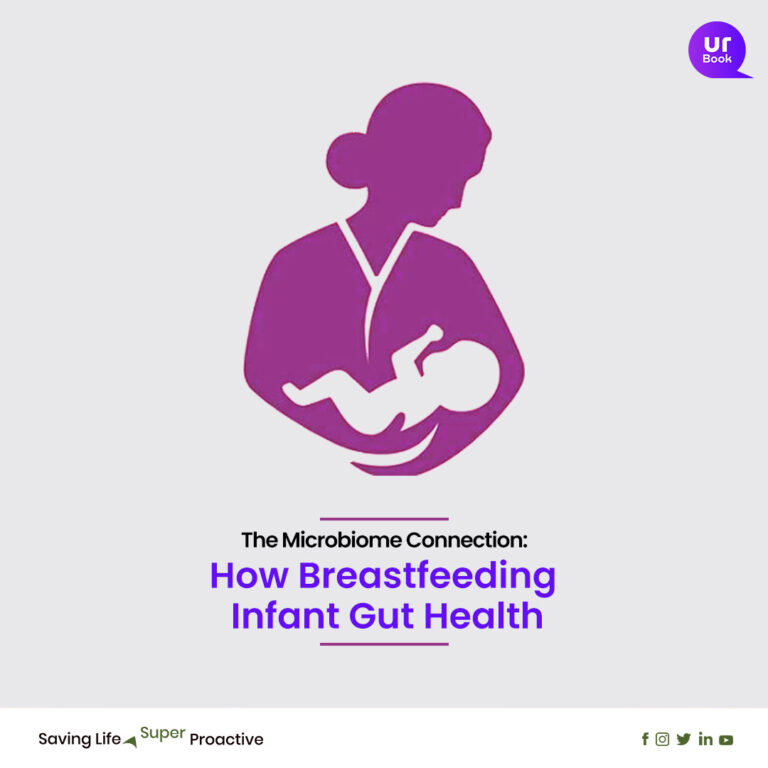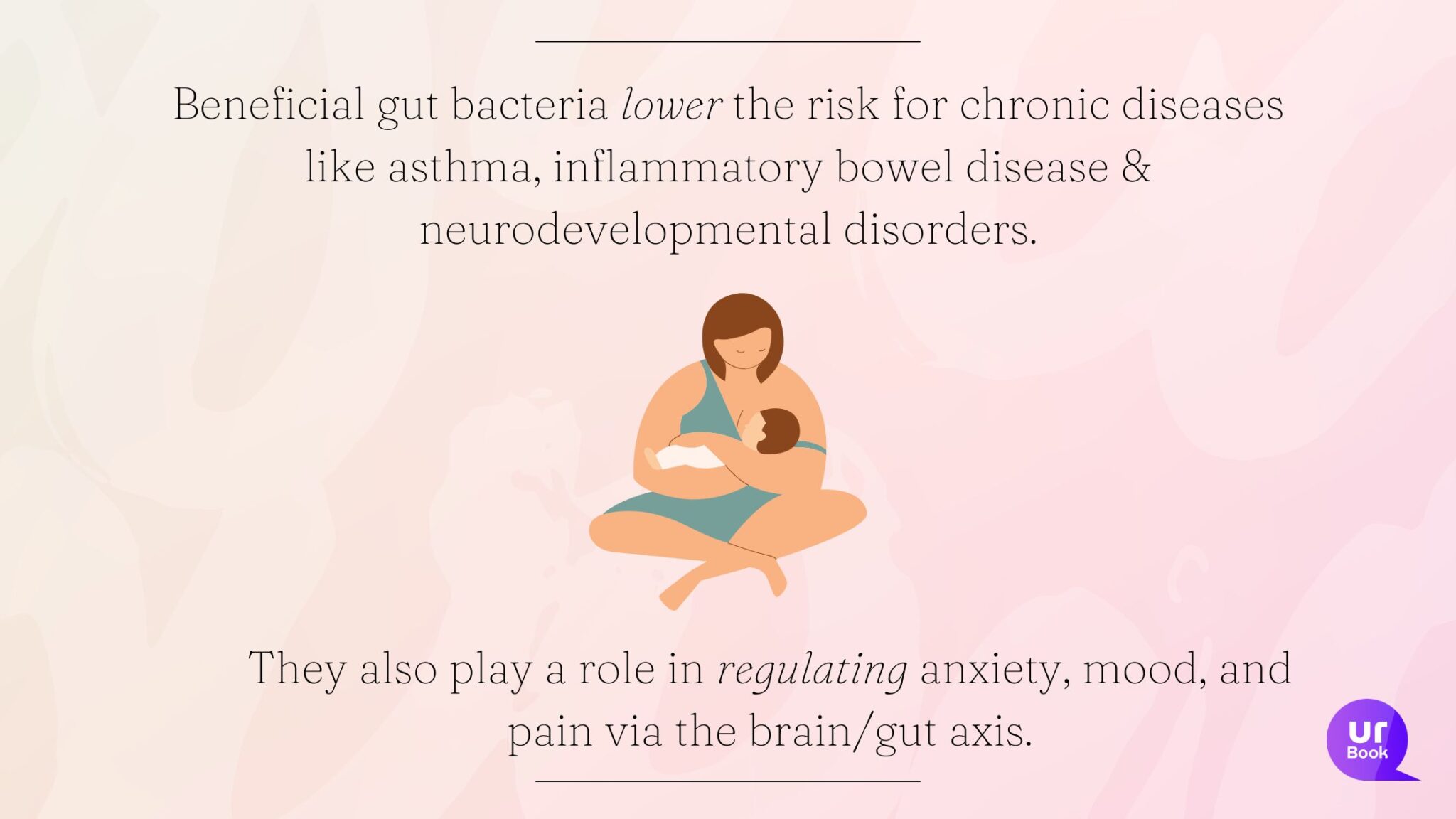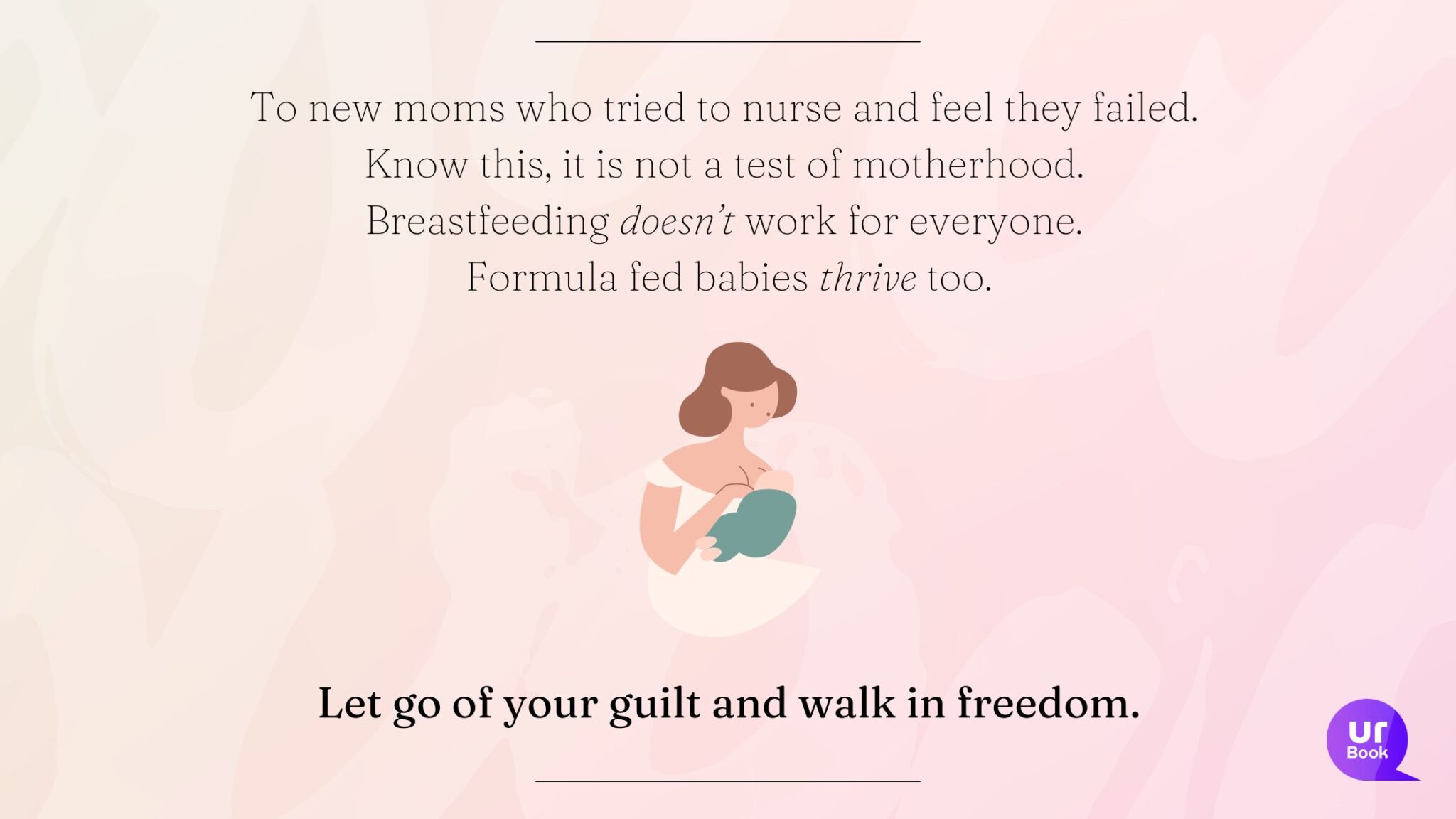
The world now has a global biobank for poop.
Why? Because it contains samples of microbes found in the human digestive system. And millions of these tiny, invisible helpers are under threat.
So, scientists are collecting stool samples from around the world before it’s too late and the microbes that influence our immune system for the better completely disappear.
That’s the point germane to us today. Our microbiome influences our metabolism and immunity. And this influence begins with breastfeeding.
So, as we celebrate World Breastfeeding Week, let’s delve into one of the benefits of breastfeeding: developing a healthy gut flora in babies.
What is the gut microbiome and how breastfeeding impacts it?
In the realm of mother and baby health, breastfeeding has long been recognised as a cornerstone of nurturing and nourishing newborns. Beyond its obvious nutritional and psychological benefits, nursing plays a pivotal role in shaping a child’s microbiome.
The gut microbiome is a vast community of microorganisms residing in the gastrointestinal tract. It is also known as the gut flora and consists of trillions of bacteria, viruses, and fungi.
During the early stages of life, the baby’s gut is relatively sterile, but it quickly becomes populated by microbes. While many of them are acquired from the environment during delivery and what a pregnant woman eats, the most significant factor affecting gut flora is breastfeeding.
Breast milk: a unique elixir for the gut
Research is just beginning to tease out the intricate relationship between breast milk and gut flora. But we do know it has a profound impact on the baby’s immune system and overall health.
Breast milk is far from a simple liquid.
It is a complex fluid comprising a plethora of bioactive compounds, antibodies, and living cells. It serves as the first inoculation against harmful pathogens, and among its most significant contributions is establishing the gut microbiome.
1. Nurturing beneficial bacteria
How well the immune system functions depends a lot on the gut. When a body has a thriving, healthy microbiome, immunity is good.
It’s in the first three years of life that a healthy microbiome develops. And once you have that healthy gut, it continues for your entire lifespan, helping fight diseases and prevent infections.

What sows the seed and nurtures a good gut? Breastmilk, since it is full of prebiotics.
These prebiotics serve as a nourishing food source for specific strains of bacteria, such as Bifidobacteria and Lactobacilli, known for their health-promoting properties.
As these friendly bacteria flourish, they create a protective environment in the gut, crowding out germs and reducing the risk of infections.
Research proves that the gut flora of a breastfed infant has more bifidobacteria and Lactobacillus species, while a formula-fed baby has a more diverse gut microbiota.
Why is that so?
Because breastmilk has an abundance of Human Milk oligosaccharides or HMOs. These are complex sugars that act as prebiotics. They are absent in most formulas, which creates differences between the gut microbiota of breast-fed vs. formula-fed infants.
2. Boosting the immune system
Breast milk also contains immunoglobulins, antimicrobial peptides, and other immune factors that confer passive immunity to babies, offering protection during the vulnerable early months of life.
Furthermore, breast milk fosters the maturation of the baby’s immune cells, equipping them with the ability to recognise and respond effectively to potential threats.
3. Long-term benefits of breastfeeding
The influence of breastfeeding on the gut microbiome extends beyond infancy. The microbiome is simple for the first 3 years of life. But it quickly becomes more diverse, complex, and stable.
Studies suggest that early microbial colonisation has lasting effects on metabolism, inflammation, and disease risk later in life. Kids who are exclusively breastfed have more diverse bacteria in their gut, which is associated with a reduced risk of allergies.
Research also indicates that breastfeeding babies may better protect them against certain gastrointestinal disorders and even necrotizing enterocolitis (NEC). The latter is a severe and potentially life-threatening condition, primarily affecting preemies. The unique components in breast milk seem to provide a protective barrier against NEC.

Embrace the diversity of breastfeeding choices
Breastfeeding has a profound impact on shaping the gut microbiome. And through it, fortifying the immune system and providing a host of long-term health benefits.
Any amount of breastmilk is beneficial, even when given for a short period and even if it is pumped.
But as World Breastfeeding Week ends, let’s remember that promoting breastfeeding doesn’t mean diminishing the choices of those who are unable to nurse.
Each mother’s journey is unique, and there can be various reasons why some may face challenges or choose alternative methods. Formula feeding or using donor breast milk is equally nourishing, particularly given the modern advances in infant formula.
What matters is that every mother gets to make an informed choice.
